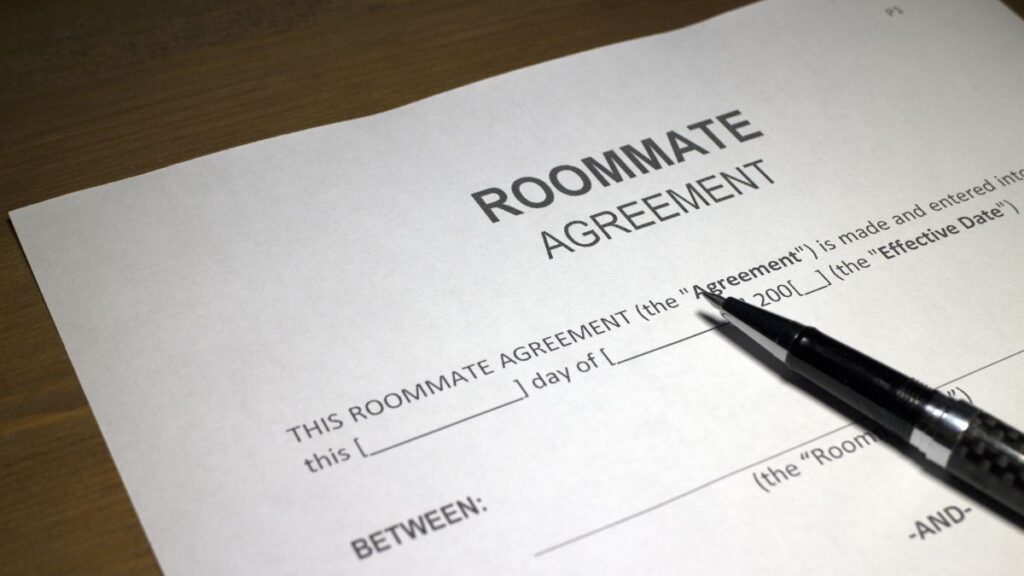In the bustling heart of New York City, where finding the perfect bagel is easier than snagging a subway seat during rush hour, the quest for the ideal roommate can feel like auditioning candidates for a reality show. But fear not, dear reader! This guide is your golden ticket to bypassing the drama and diving straight into harmonious city living. Let’s turn that roommate roulette into a match made in New York City!
This article is here to make the road to finding a roommate in the city that never sleeps, New York City! Hopefully, your new roommate will. Without the snoring, if you’re lucky enough.
Understanding the NYC Housing Landscape
New York City, with its iconic skyline and bustling streets, it’s a dream destination for many people who want to pursue their career in a global metropolis. However, chasing your dreams often comes with challenges that are far more pedestrian than the glamorized image you get from the movies and series.
According to a report from the New York City Comptroller’s Office, a staggering 60% of New Yorkers spend a significant portion of their income on rent. This financial strain has led to an increasing trend in shared living. The U.S. Census Bureau notes that about 40% of adult renters in NYC now cohabit with non-relatives, a figure that’s been on the rise over the past decade.
The soaring rent prices, coupled with the city’s allure, have made co-living not just an economic choice but also a social one. As StreetEasy points out, the city’s median rent has consistently outpaced the median income, pushing New Yorkers to get creative with their living arrangements.
In this landscape, finding the right roommate isn’t just about sharing costs; it’s about building a mini-community within the vast expanse of a city that is famous for being inhospitable at first. As we delve deeper into the roommate search in the sections that follow, keep in mind the broader context of NYC’s housing challenges and the innovative spirit of its residents.
How To Find A Roommate In NYC
Roommates are for all kinds of people, young and old! Literally, young and old. Statistics show that the two age groups with the highest percentage of renters among them were in the categories of under thirty and over sixty. The percentage of twenty-three to twenty-nine-year-old adults living with roommates rose almost fifty percent in the last five years.

- According to a study by Zillow, the percentage of adults living with roommates or other non-family members in NYC has risen to nearly 40%. This figure has seen a steady increase over the past decade, reflecting the city’s challenging housing market.
- A report from Pew Research highlights that the phenomenon isn’t limited to younger generations. While millennials make up a significant portion of those living with roommates, there’s been a noticeable uptick in older adults (over 40) choosing shared living arrangements.
- Beyond just economics, there’s a social aspect to consider. A survey by Apartment List found that many New Yorkers value the companionship and shared responsibilities that come with having a roommate, especially in a city as vast and sometimes overwhelming as NYC.
The average median income in New York City is close to four thousand dollars a month, which renders it no big surprise that many people live with roommates in NYC. A roommate can bring costs down to as small an average as twelve hundred dollars per roomie per month.
Beyond that, everybody has their reasons, just like you have yours. Be sure to ask any potential roommates what their reasons are to aid in measuring your compatibility.
Tapping into Personal Connections: The Power of Word-of-Mouth
Ask your friends. Put the word out. You need a roommate. You have an extra room. A ‘Search party’ is a good idea, where you invite friends over for hor d’oeuvres, drinks and an announcement.
It is always better to find a roommate through personal acquaintances, a built-in reference. Plus, if they are friends and you are friends, it is more likely you might share common interests.
Colleagues are also a good pool of candidates! Put a flyer up at work. Put the word out to your network of professionals. Ask around at the office. Again, since your co-workers know you and know other professionals, you are more likely to find a personal reference and maybe even common interests. But at least somebody with a job!
The city’s housing market thrives on personal referrals. Informing friends, family, and colleagues about your search can yield promising leads. In a city as interconnected as NYC, someone always knows someone looking for a living arrangement. However, if you’re considering friends or relatives as roommates, it’s essential to weigh the benefits against potential relationship strains.
Craigslist: The Evergreen Platform
Despite its age, Craigslist remains a go-to platform for many roommate seekers. It’s free and boasts a vast user base. To optimize your search, craft a detailed listing that outlines your preferences and requirements. But a word of caution: always prioritize safety. With the rise of scams on the platform, it’s crucial to meet potential roommates in public places and verify their authenticity.
Reddit’s r/NYCapartments: A Digital Goldmine
This subreddit is a treasure trove for those scouting for roommates or housing situations in NYC. While it demands patience to navigate through the myriad of posts, the rewards can be significant. As with any online platform, maintaining a keen eye for scams and always ensuring your safety should be paramount.
Before diving in, spend some time browsing r/NYCapartments. Familiarize yourself with the types of posts, the community’s etiquette, and any rules or guidelines.
Whether you’re offering a room or seeking one, clarity is key. In your post:
- Title: Clearly state what you’re looking for (e.g., “Seeking Roommate for 2BR in Brooklyn” or “Looking for a Room in Manhattan”).
- Body: Provide essential details such as budget, preferred neighborhoods, move-in date, and any specific requirements or preferences you have in a roommate.
Social Media: Your Extended Network
Perhaps you don’t live in New York City but plan to move there. One way to find out your options is to send out social media posts. Google the social media hashtags associated with renting in New York City. This research will be very valuable in any case.
It even applies to those already living in New York City. Let your social media followers know you have a room or are looking for one. This is a quick way to cast a wide net. It may not be as personal, but it gets results.
Platforms like Facebook, LinkedIn, and Twitter can be instrumental in your roommate search. By crafting a detailed post, adding images of the available space, and encouraging shares, you tap into not just your immediate network but also their extended circles.
Facebook Groups: A Community Approach
Beyond personal profiles, Facebook Groups offer a broader reach. With Facebook’s recent emphasis on its Groups feature, now is an opportune time to explore potential roommate matches. Popular NYC-centric groups like “Rooms & Roommates in New York City” or “New York City Sublets” can be valuable resources. However, always prioritize privacy and safety when interacting with potential roommates.
Specialized Apps and Websites: The Modern Touch
The digital age has ushered in a plethora of specialized apps and websites tailored for roommate searches. Platforms like Roomi, which combines elements of Tinder and Airbnb, offer vetted profiles for added security. Apps like Bumble have expanded beyond dating with features like Bumble BFF and Bumble Bizz. These platforms are designed for making friends or business networking, making them more suitable for a roommate search than traditional dating apps. Others, like Inside Digs or Rainbow Roommates, cater to specific niches or preferences, ensuring a more tailored search experience.
Dating Apps: An Unconventional Route
While platforms like Tinder and Bumble are primarily for dating, they’ve expanded their horizons. Bumble, for instance, has features for making friends or business networking. Why not use these platforms for roommate searches? It’s an unconventional approach, but with clear communication, it might just lead to a perfect match.
Real-Life Interactions: The Traditional Way
Despite our digital inclinations, real-world interactions remain invaluable. Organizations like Speed Roommating host events where potential roommates can mingle and discuss preferences in person. Such events offer the advantage of immediate, face-to-face interactions, allowing for a more intuitive selection process.
Alumni networks are a great place to start. Reach out to your former university. They usually have services for alumni who are trying to find roommates in NYC, linking them with other alumni who need a place to live. Conversely, if you are looking for a room, alumni who are offering.
Your college or university’s alumni network can be a goldmine. Many institutions, both local and out-of-state, maintain active NYC-based alumni groups. Posting in these groups or reaching out to their offices can connect you with potential roommates who share a common educational background.
Expat Communities: Finding Familiarity in a New City
NYC’s diverse population includes a vast number of immigrants. For those hailing from outside the U.S., expat communities can offer a touch of home. Platforms like InterNations New York provide a space for immigrants to connect, share experiences, and even find roommates.
Brokers: Professional Assistance
New York City has rental agencies and private brokers brimming with properties. They can often pair you with someone on an already existing lease. Of course, there will be a fee for using their service and sometimes it can be steep.
While it might seem counterintuitive to pay someone to find a roommate, the expertise of apartment brokers can simplify the process. With the evolving real estate landscape, many brokers now specialize in roommate matchmaking, ensuring both compatibility and convenience.
Roommate Responsibilities
Of course, you and your new roommate will have a responsibility to each other. Living spaces are sacred. The privilege of having a roommate comes with certain obligations.
The first obligation is the landlord. Are you the one moving in? Or is a potential roomie going to be moving in with you? Whichever arrangement is being made, the terms of the lease and the landlord must be reviewed, preferably by both parties. Do you have to notify the landlord? Is it necessary to add the roommate to the lease? These are questions you will need answered.
Even if signing a lease is not involved, it is good practice and due diligence to at least sign a personal agreement, drawn up between the two of you, or taken from an online template, or prepared by a lawyer, if it doesn’t add an unnecessary and burdensome cost to the proceedings.
Draft A Roommate Agreement (Free Template Included!)
Remember, negotiation is a two-way street. All the best negotiating coaches will remind you that in negotiations you should always be working towards a win-win outcome. Negotiations are as much there to protect you as they are for the other party to make their demands. You may be getting involved in a long term situation you will be legally bound to uphold so don’t skip this step.

Topics you will want to cover include house rules. Agree on these ahead of time to minimize disputes arising later. House rules can include guest policy, substance policy (drugs and alcohol) and even what groceries are shared.
Basically, get a feel for each other’s lifestyles and how rigid each of you are. Because there will inevitably exist, in most or all cases, shared spaces such as the kitchen and the bathroom, not to mention the living room.
Another thing to discuss is cleanliness. You can make a schedule but not everybody can always stick to it. Don’t forget the cost of cleaning supplies! Splitting the bill for a cleaning service, since you are already roommates, is another option that makes sense.
Discuss these things ahead of time to ensure the situation doesn’t turn unpleasant fast. Do you really want to be looking for another roommate or apartment just two months later?
Below is a template roommate agreement that you can copy, paste and customize for personal use:
Roommate Agreement Template
Roommate Agreement Template Parties Involved: 1. [Full Name of Roommate 1] 2. [Full Name of Roommate 2] Address of Shared Residence: [Full Address, including any apartment or unit number] Duration of Agreement: From [Start Date] to [End Date] 1. Rent: - Total Rent Amount: $[Total Monthly Rent] - Each Roommate's Share: $[Amount] per roommate - Due Date: [e.g., "1st of each month"] - Payment Method: [e.g., "Bank transfer, check, etc."] 2. Security Deposit: - Total Security Deposit: $[Total Amount] - Each Roommate's Contribution: $[Amount] per roommate - Conditions for Return: [e.g., "No damage to property, all rent and bills paid, etc."] 3. Utilities and Bills: - Division: [e.g., "Equally divided among roommates"] - Due Date: [e.g., "10th of each month"] - Utilities Included: [e.g., "Electricity, water, internet, etc."] 4. Household Duties: - Cleaning: [e.g., "Shared equally, with weekly rotations"] - Groceries: [e.g., "Purchased separately or shared budget of $X per week"] 5. Guest Policy: - Overnight Guests: [e.g., "Allowed with 24-hour notice, no more than 3 nights consecutively"] - Parties/Events: [e.g., "Allowed with mutual consent, no later than 11 PM"] 6. Personal Spaces and Shared Spaces: - Respect for Personal Space: [e.g., "No entering without permission"] - Shared Spaces: [e.g., "Living room, kitchen, and bathroom to be kept tidy"] 7. Conflict Resolution: - Communication: [e.g., "Open dialogue encouraged for any issues"] - Mediation: [e.g., "If a resolution cannot be reached, a third-party mediator will be consulted"] 8. Termination of Agreement: - Notice: [e.g., "30 days written notice required by either party"] - Conditions: [e.g., "Breach of agreement, consistent late payment, etc."] 9. Other Agreements: - [Any other specific agreements or rules the roommates want to include] Signatures: __________________________ ________________________ [Full Name of Roommate 1] Date __________________________ ________________________ [Full Name of Roommate 2] Date
What To Look and Look Out For
Similar interests are great, and where you look for a roommate will have a great effect on the chances of similar interests. This article will dive into that shortly.
But similar interests are a bonus, really. The truth is both parties share a common need: housing. Sacrifices and compromises will have to be made.
Some common ground you can try to tread on include work schedules, apartment layout and budget.
Similar work schedules can have both pros and cons. If you both work during the same hours, it is less likely one of you will bother the other by staying up past bedtime hanging out with noisy companions. On the other hand, if you both come home at the same time, neither of you will ever have the home all to yourself and it may always seem crowded! You can see the need for coordination.
The layout of the apartment should be discussed. Who will stay in which room? Where will things be stored? Don’t forget policies for common living spaces.
Budget is important as well. Can your roommate afford all the costs? Will they be a burden on you? When one person has much more money than the other, it can become a sticking point.
Protecting Yourself as a Tenant
Just as a landlord takes measures to protect their interests, you should too. It’s essential to gather adequate information about potential roommates to ensure a harmonious living situation.
- Reference Checks: While asking for references might feel intrusive, it’s a basic step and arguably less invasive than other potential inquiries.
- Financial Stability: Understanding a potential roommate’s financial situation is vital. While discussing finances can be delicate, it provides insight into their transparency and reliability. Instead of directly inquiring about their income, gauge if they can comfortably cover their portion of the rent.
- Work History: A person’s employment trajectory can reveal a lot. Frequent job changes might indicate a lack of commitment, which is essential when relying on a roommate. If there’s a pattern of unemployment, it raises concerns about their ability to meet expenses consistently.
- The Power of Social Media: Today, platforms like LinkedIn allow you to verify work details of potential roommates. Meanwhile, Facebook, Twitter, and Instagram can offer insights into shared interests and potential areas of conflict. While this approach might feel a bit invasive, it’s often less awkward than direct questioning.
- A Word of Caution: Remember, social media portrayals can sometimes be deceptive. Also, it’s likely that potential roommates might be researching you in a similar manner.
Protecting Yourself From Landlords
There really is nothing wrong with protecting yourself. Feel emboldened to ask for pay stubs, if you will be adding the roommate to a lease, or especially if the lease is in your name and you will be shouldering all the responsibility in your name.
Conversely, if you are moving in on someone else’s lease, ask to see it. Check-in with the landlord yourself. Ask to see proof of rental balance and receipts. Confirm that it is legally allowed in the lease for you to move in. Also confirm that there are no unpaid balances that might put your living situation at risk should the roommate default on their responsibilities and leave you holding the ball.
Keep in mind that it is also illegal in New York City to charge a boarder more than the amount of the monthly rent. If the rent is two thousand a month, the roommate can’t charge you twenty-two hundred a month. They are not permitted to make a profit as a private citizen. That may seem logical, natural and ethical, but to prevent it still requires a law.
They can charge you more than half the rent, to save themselves some dough, and you could potentially do the same if you are on the receiving end of the roomie situation. But it’s super unethical and you wouldn’t want someone to do it to you.
Most landlords and every rental company run credit checks. It’s an option, but it’s a little more cumbersome for the private citizen. The renter will probably not agree to the fee, leaving you to pay for it. And you have to ask for personal data, such as social security numbers. It’s possible if you really require it, but it will be more problematic and raises privacy issues.
This may seem like a lot and very intense, but it’s really not the worst and both parties should be understanding of the need to vet one another. Housing is complicated in almost every country.
Resources For Finding Roommates In NYC
Speaking of the original world wide web rental listing service, explore the internet. There are a number of websites which offer services related to finding a roommate. Here’s a quick rundown:
- Facebook Groups – After googling some hashtags, it should be fairly easy to find some of the best Facebook Groups related to finding a roommate in New York City.
- Spare Room – Spare Room is an active web community. You can enter search criteria to find potential roommates. You can post an ad for free or pay a little for a higher search ranking. They also offer events and contests.
- Listings Project – This is a free weekly email list. You can also post an ad for a low fee. The list is privately curated. It especially caters to artists who have special needs like space to create.
- Roomi – Roomi is an app. The staff vets all candidates and there is a chat feature so you can connect directly with your potential roomie.
Not on the internet in New York City is one more service, for those of you who fall in the previously mentioned older people category. Check out the New York Foundation For Senior Citizens Home Sharing Program if you are over sixty. Many of the candidates there aren’t in it for the money! They are just looking for companionship or a little help around the house.
Now hit the ground running and launch your search for the perfect soul mate – I mean, roommate! Hopefully both. Good Luck!

Born and raised amidst the hustle and bustle of the Big Apple, I’ve witnessed the city’s many exciting phases. When I’m not exploring the city or penning down my thoughts, you can find me sipping on a cup of coffee at my favorite local café, playing chess or planning my next trip. For the last twelve years, I’ve been living in South Williamsburg with my partner Berenike.

